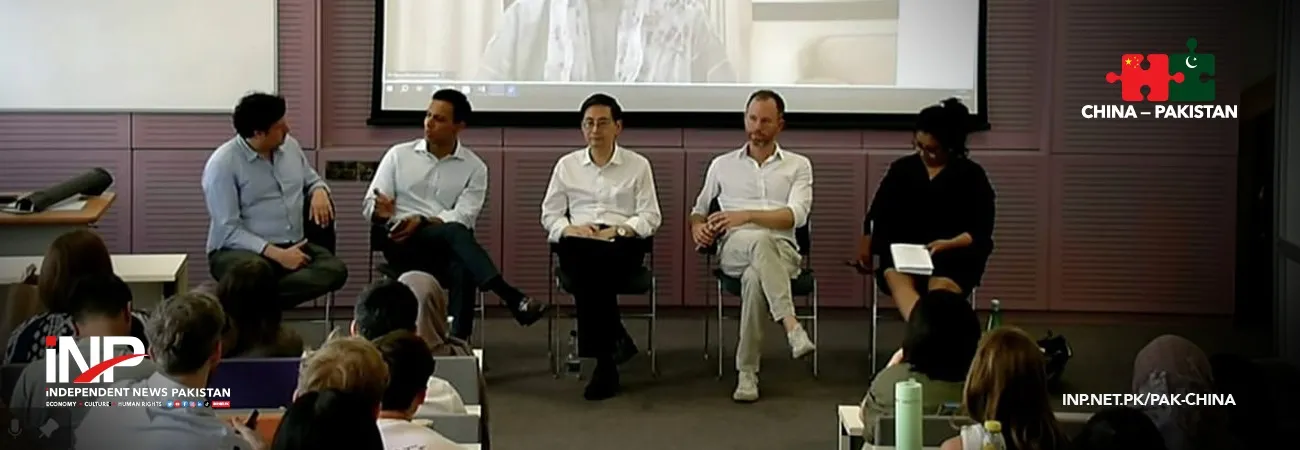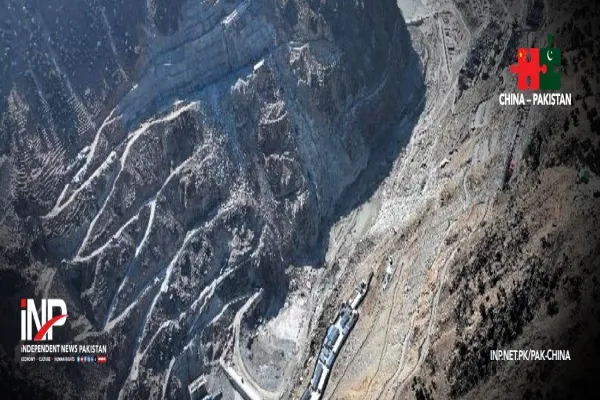i NEWS PAK-CHINA
The Pakistan-China Institute (PCI) hosted a forum titled “Green Energy Transition in Asia: Aligning Finance, Policy & Equity” at the University of London, bringing together experts and policymakers to explore Asia’s pivotal role in tackling climate change. Asia accounts for over half of global greenhouse gas emissions, making its energy transition essential to achieving global climate goals. However, progress across the region remains uneven due to differing economic contexts, financing gaps, and political challenges.
According to a report carried by Gwadar Pro on Thursday, speakers at the Forum emphasized that with scaled-up green finance, smarter regulations, and strengthened regional cooperation, Asia can lead the global shift to clean energy. Dr. Shezra Mansab Kharal, Pakistan’s Minister of State for Climate Change, outlined the country’s efforts to accelerate its energy transition. Pakistan aims to generate 50% of its electricity from clean sources by 2030.
New imported coal plants have been banned, and a surge in rooftop solar installations is already underway. She called for multilateral support that avoids creating additional debt burdens, and emphasized the need for greater investment in local knowledge and capacity building. “We are at a climate crossroads,” she said. “Pakistan needs global solidarity to ensure a transition that protects vulnerable communities, fosters innovation, and builds long-term resilience.”
Suba Sivakumaran of UNESCAP warned that despite rising investment in clean energy, the Asia-Pacific region still relies on coal for 40–45% of its electricity. She called for China-style coordination between the energy and finance sectors, the removal of fossil fuel subsidies, and greater policy clarity to boost investor confidence. Dr. Ma Jun, Chair of the China Green Finance Committee, shared how China’s coordinated green finance strategy is delivering results. For now, 50% of new cars sold in China are now electric.
China has also set a global record in renewable energy development. For countries like Pakistan, Dr. Ma noted that transitioning away from coal is more complex. With annual power demand growing by 5% and many coal plants still under long-term debt, a sudden coal exit could be risky. He recommended a phased approach: retire debt-free coal units first, invest in energy storage to stabilize renewables, and ensure renewable projects are financially viable so as to avoid power shortages and loan defaults. Prof. Uli Volz of SOAS and Prof.
Christoph Nedopil of Griffith University highlighted the need to integrate climate risk into financial systems, strengthen grid infrastructure, and invest in battery storage. They also stressed the importance of green taxonomies to mobilize domestic capital. The forum echoed a unified message: Asia’s energy transition is central to the global climate fight. But it must be tailored to the local context. Aligning finance, policy, and equity is not just a technical necessity; it is a moral imperative for a just, green future.
Credit: Independent News Pakistan (INP) — Pak-China









